Australia’s hidden high-rise housing crash
The Albanese government’s fantastical target to build 1.2 million homes over five years is centred on delivering a boom in high-rise towers.
However, the April dwelling approvals data from the Australian Bureau of Statistics (ABS) showed that high-density approvals have collapsed.
Overall dwelling approvals fell by 5.7% in April in seasonally adjusted terms, which followed an 8.8% decline in March.
Apartments drove the decline in dwelling approvals, as illustrated below by CBA:
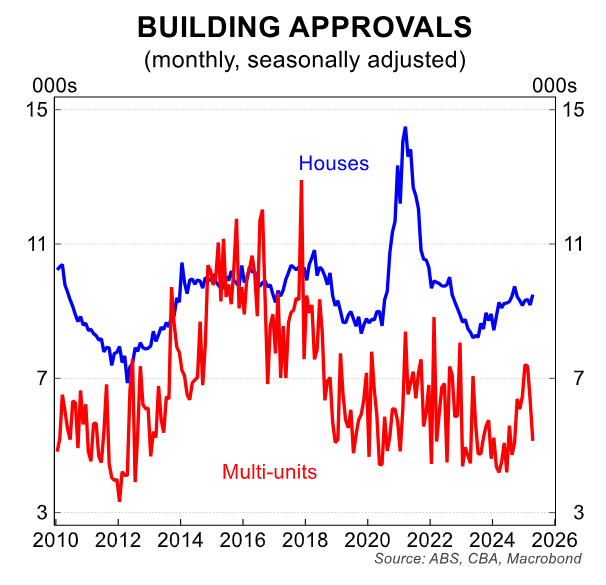
In particular, high-rise apartments of nine-plus storeys:
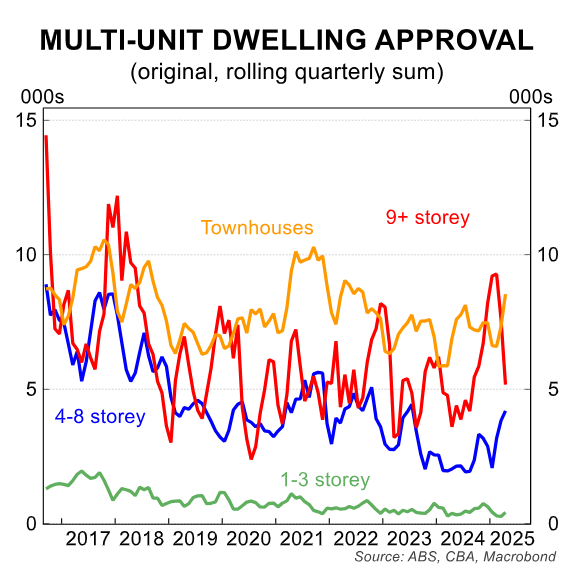
The following chart plots high-rise approvals (i.e., 4 storeys or more) on a rolling annual basis across the major jurisdictions and nationally.
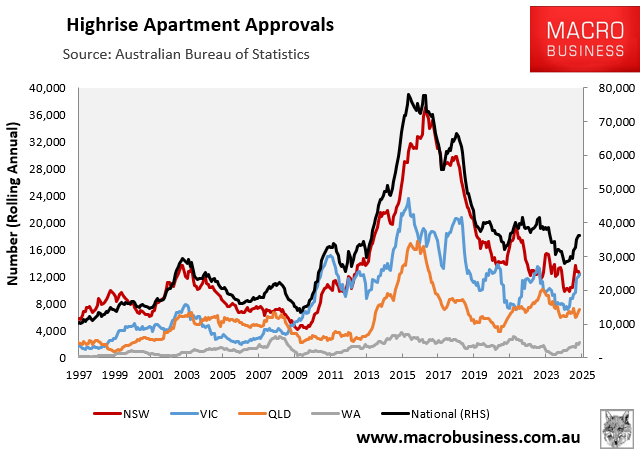
Annual high-rise approvals are tracking 53% below their 2015 peak nationally. Across the three major jurisdictions, high-rise approvals are tracking 67% below peak in New South Wales, 48% below peak in Victoria, and 59% below peak in Queensland.
Cost is arguably the major barrier to accelerating high-rise apartment construction. As illustrated below by Michael Matusik, constructing apartments is simply too expensive. As a result, buyers cannot purchase them at a reasonable price.
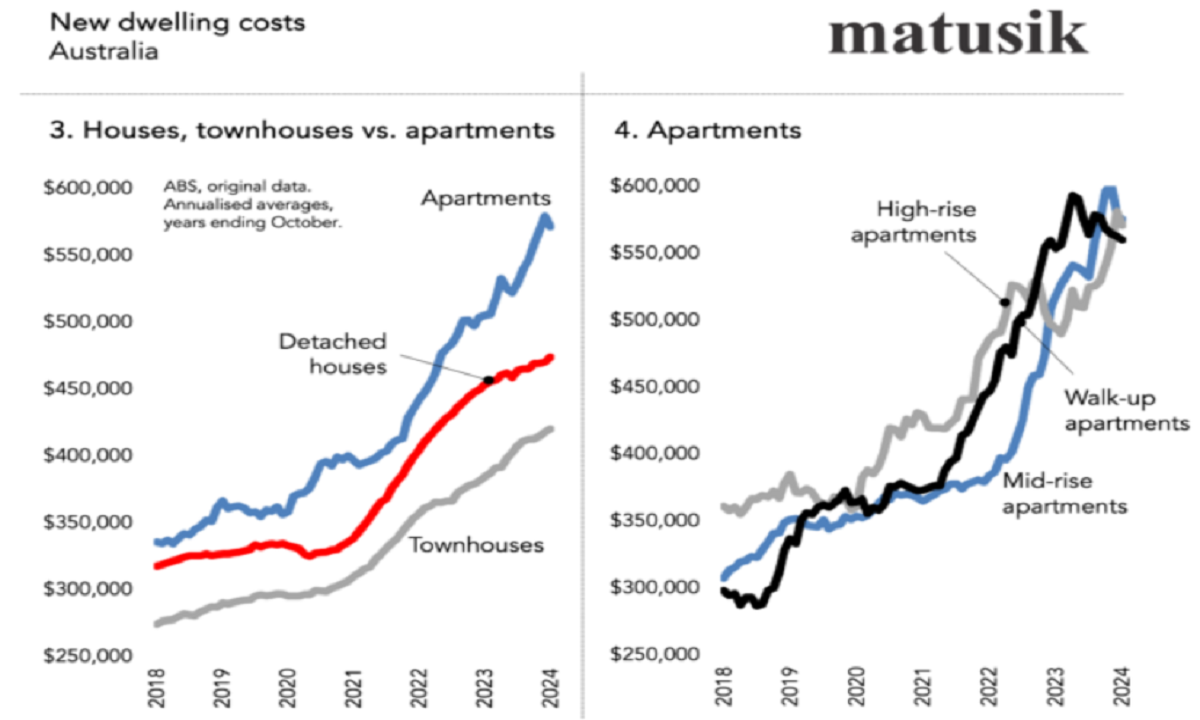
Indeed, Urbis recently highlighted that selling prices in Australia’s major cities increased by a record 24% in Q4 2024, reaching more than $19,000 per square metre.
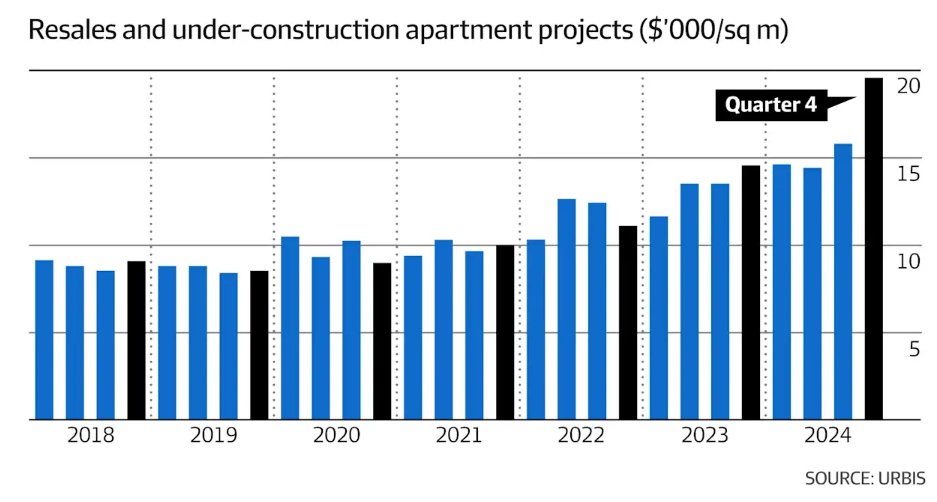
The construction quality of new apartments in Australia is also poor, and strata fees are exorbitant, further restricting affordability.
Meanwhile, apartments also take too long to construct in Australia.
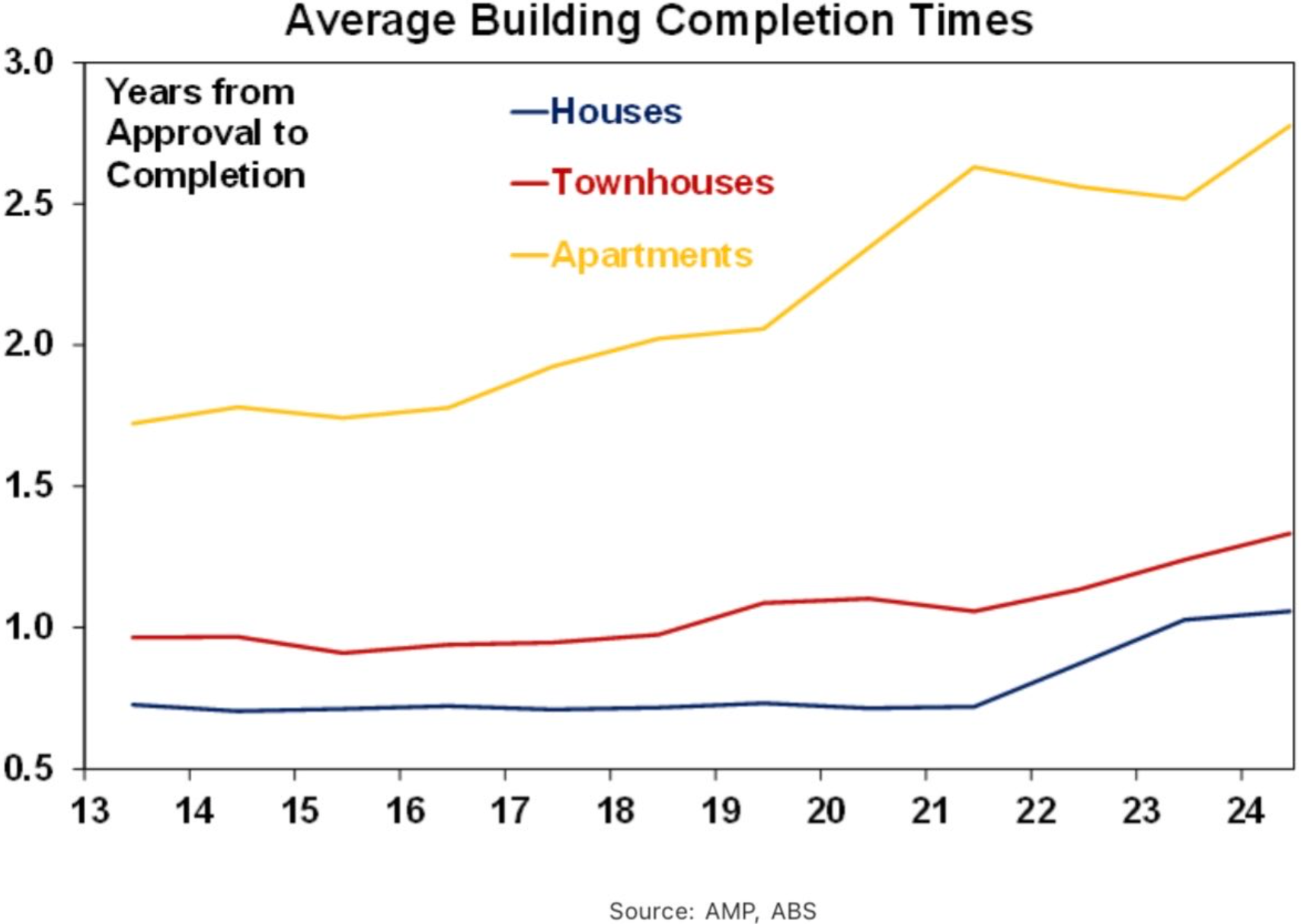
The amount of time taken to build an apartment in Australia increased from approximately 1.75 years in 2013 to 2.75 years in 2024. This compares poorly against around one year to build a house and 1.4 years to construct a townhouse.
The economics of apartment construction currently does not add up. This means that the hoped-for boom in apartment construction is pure fantasy.
